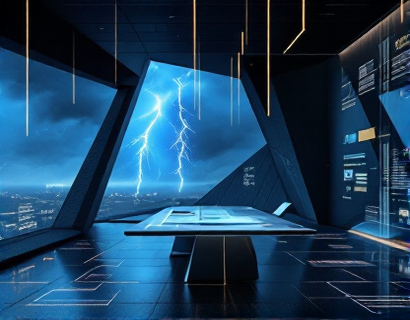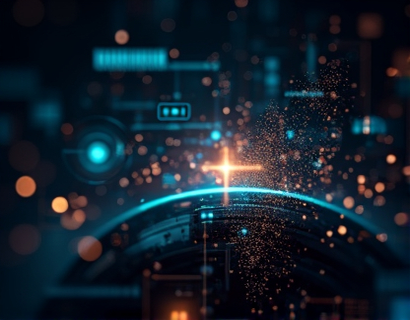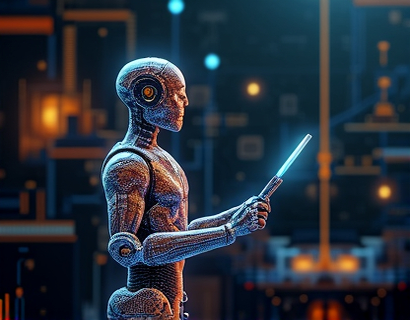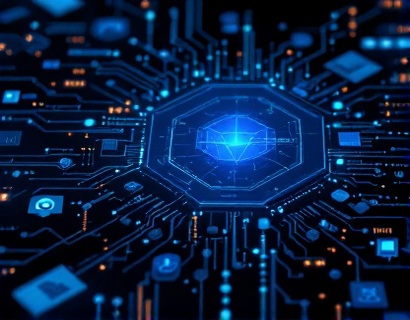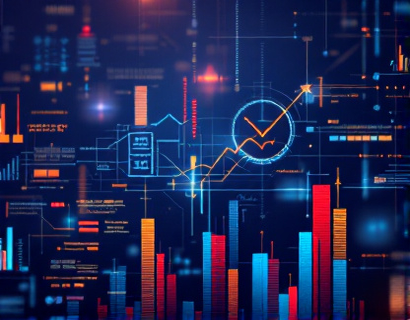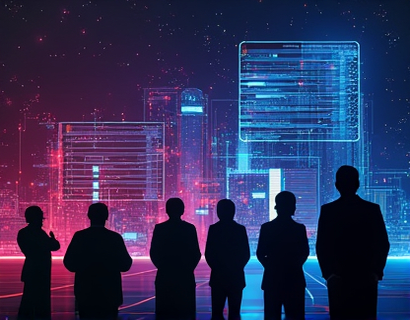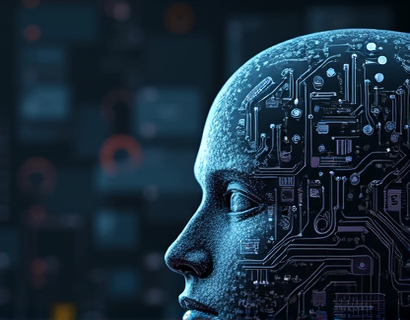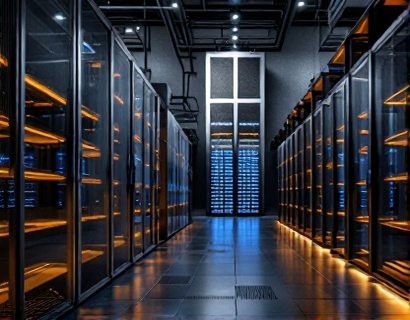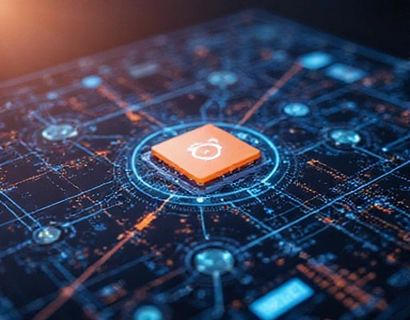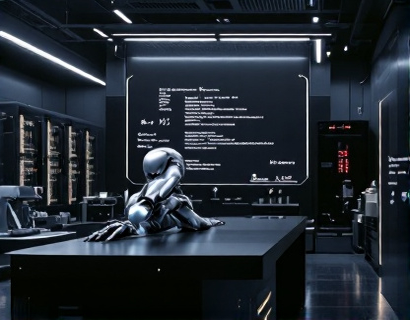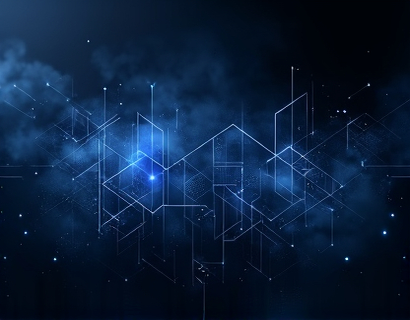Decentralized DAOs: Empowering Web3 Governance Through Community-Driven Innovation and Transparency
In the rapidly evolving landscape of Web3, decentralized autonomous organizations (DAOs) stand as a pivotal force in redefining governance and innovation. These community-driven entities leverage blockchain technology to create transparent, efficient, and scalable systems for managing digital protocols. This article delves into the core principles of DAOs, exploring how they empower communities and revolutionize the way Web3 governance is approached.
Understanding Decentralized Autonomous Organizations
At their core, DAOs are organizations governed by rules encoded on a blockchain. These rules dictate how the DAO operates, including decision-making processes, fund allocation, and member participation. Unlike traditional organizations, DAOs do not rely on a central authority or hierarchical structure. Instead, they operate through smart contracts, which automate and enforce the organization's rules and policies.
The term "decentralized" emphasizes the distribution of control and decision-making power among members. This decentralization is achieved through token-based governance, where members hold tokens that grant them voting rights. The more tokens a member holds, the greater their influence in proposing and voting on changes to the DAO's governance rules. This token-driven model ensures that power is distributed based on participation and stake, rather than traditional hierarchies.
Community Empowerment in DAOs
One of the most significant advantages of DAOs is their ability to empower communities. By removing centralized control, DAOs level the playing field, allowing individuals with diverse backgrounds and expertise to contribute to decision-making processes. This democratization of governance fosters a sense of ownership and accountability among members, driving innovation and collaboration.
Community empowerment in DAOs manifests in several ways. First, the transparent nature of blockchain technology ensures that all proposals, discussions, and voting outcomes are publicly accessible. This transparency builds trust and encourages active participation, as members can track the evolution of proposals and the impact of their votes. Second, the token-based governance model incentivizes engagement by rewarding active participants with voting power and potential financial benefits. This creates a virtuous cycle where more involvement leads to greater influence and rewards.
Moreover, DAOs facilitate the formation of global communities united by shared goals and values. Members from around the world can collaborate seamlessly, breaking down geographical and cultural barriers. This global perspective enriches the decision-making process, bringing in diverse viewpoints and solutions that might not emerge in more centralized environments.
Transparency as a Cornerstone of DAOs
Transparency is not just a feature but a fundamental principle of DAOs. The immutable and public nature of blockchain ensures that all transactions and governance activities are recorded and verifiable. This level of transparency is unparalleled in traditional governance models, where information is often controlled and manipulated by those in power.
In a DAO, every action, from proposal submission to voting results, is logged on the blockchain. This creates an auditable trail that members can review at any time, ensuring accountability and reducing the risk of fraud or corruption. The openness of DAOs also extends to financial management, with clear visibility into fund allocations and expenditures. This financial transparency builds trust among members and external stakeholders, fostering a more robust and sustainable community.
Transparency in DAOs also extends to the development and maintenance of protocols. Smart contracts, which underpin DAO operations, are open-source, allowing anyone to review and audit the code. This openness encourages a community of developers to contribute to the improvement and security of the protocols, enhancing their robustness and reliability.
Scalability and Innovation in DAO Governance
Scalability is a critical challenge in the Web3 ecosystem, and DAOs offer innovative solutions to address this issue. By distributing governance across a decentralized network, DAOs can scale more effectively than centralized systems. The token-based model allows for flexible and dynamic governance structures that can adapt to the growing needs of the community.
One key aspect of scalability in DAOs is the use of layer 2 solutions and sidechains. These technologies offload certain operations from the main blockchain, reducing congestion and transaction costs. DAOs can leverage these solutions to manage complex governance tasks without compromising on speed or efficiency. Additionally, modular governance frameworks enable DAOs to integrate new protocols and tools as they emerge, ensuring that the organization remains agile and forward-looking.
Innovation in DAOs is driven by the collective intelligence of the community. Members with diverse skills and expertise can propose and develop new features, applications, and governance mechanisms. This collaborative approach accelerates the innovation cycle, as ideas are rapidly prototyped, tested, and refined within the community. The decentralized nature of DAOs also means that innovative solutions can be implemented without the need for centralized approval, speeding up the adoption of new technologies and practices.
Case Studies: Successful DAOs in Web3
Several DAOs have emerged as exemplary models of community-driven governance and innovation in the Web3 space. One notable example is the MakerDAO, which manages the stablecoin DAI on the Ethereum blockchain. MakerDAO's governance is decentralized, with token holders voting on critical decisions such as protocol upgrades and collateral management. This has enabled MakerDAO to maintain stability and resilience in the face of market fluctuations, demonstrating the effectiveness of decentralized governance.
Another example is the Aragon DAO, a platform for building and governing decentralized organizations. Aragon provides tools for creating custom DAOs, managing token economies, and facilitating community-driven decision-making. Its success lies in its ability to lower the barriers to entry for creating and participating in DAOs, making decentralized governance accessible to a broader audience.
These case studies highlight the potential of DAOs to transform Web3 governance, offering scalable, transparent, and community-driven solutions that empower individuals and foster innovation.
Challenges and Future Prospects
Despite their many advantages, DAOs face several challenges that need to be addressed to achieve widespread adoption. One significant challenge is the technical complexity associated with blockchain and smart contracts. Many potential members lack the technical knowledge required to participate fully in DAO governance, which can limit diversity and inclusivity.
To overcome this, educational initiatives and user-friendly interfaces are essential. DAOs can invest in creating intuitive platforms and providing resources to help newcomers understand and engage with governance processes. Additionally, interoperability between different blockchain platforms will be crucial for scaling DAO ecosystems, enabling seamless interaction and collaboration across various communities.
Looking ahead, the future of DAOs is promising. As blockchain technology matures and more people gain access to digital assets, the potential for decentralized governance grows. The integration of advanced features such as AI and machine learning can further enhance decision-making processes, providing data-driven insights and predictive analytics. The combination of these technologies with the core principles of DAOs will continue to drive innovation and transformation in the Web3 landscape.
In conclusion, decentralized DAOs represent a revolutionary approach to governance in the Web3 era. By empowering communities, ensuring transparency, and fostering scalability and innovation, DAOs are poised to play a pivotal role in shaping the future of digital protocols and decentralized systems. Joining this movement means being part of a larger effort to create a more interconnected, resilient, and future-proof digital world.



